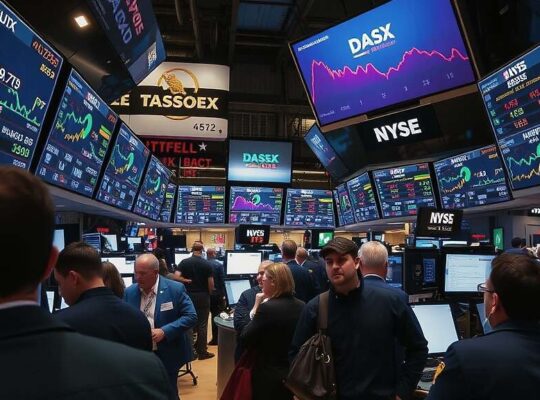The German DAX index experienced a slight dip Tuesday, closing at 24,279 points – a 0.1% decrease from the previous day’s close. Despite several attempts to break into positive territory throughout the trading day, the index ultimately remained below the prior day’s closing value. This performance underscores a growing disconnect within the European market and highlights the dominance of US-based technology companies.
Analysts attribute the DAX’s underperformance to a prevailing focus on artificial intelligence within the investment landscape. Christine Romar, Head of Europe at CMC Markets, noted that the DAX lacks significant exposure to the AI sector, contrasting sharply with the relentless upward momentum of the Nasdaq. US companies are aggressively pursuing collaborations and attracting investor capital, creating a self-perpetuating cycle of growth. The anticipation surrounding upcoming earnings reports from tech giants – Microsoft, Meta, Alphabet, Apple and Amazon – is fueling this expectation of further gains, leaving European investors potentially sidelined.
The day’s trading saw RWE, Mercedes-Benz and Deutsche Post temporarily leading the Frankfurt stock exchange, while Symrise shares lagged behind. This disparity further emphasizes the differing performance across sectors within the German market.
Elsewhere, the price of Brent crude oil registered a significant drop, falling to $64.35 per barrel – a decrease of $1.27 or 1.9% from the previous day’s close. This decline potentially reflects broader concerns about global economic growth and demand.
The euro strengthened slightly against the dollar, trading at $1.1659, rendering a dollar worth $0.8577. This minor fluctuation provides limited insight into the ongoing anxieties concerning the Eurozone’s economic stability and its capacity to compete with the US in attracting investment and fostering technological innovation. The divergence in performance between the DAX and the Nasdaq points to a more profound structural imbalance within global markets, raising questions about the long-term viability of European equity indices in an AI-driven world.












